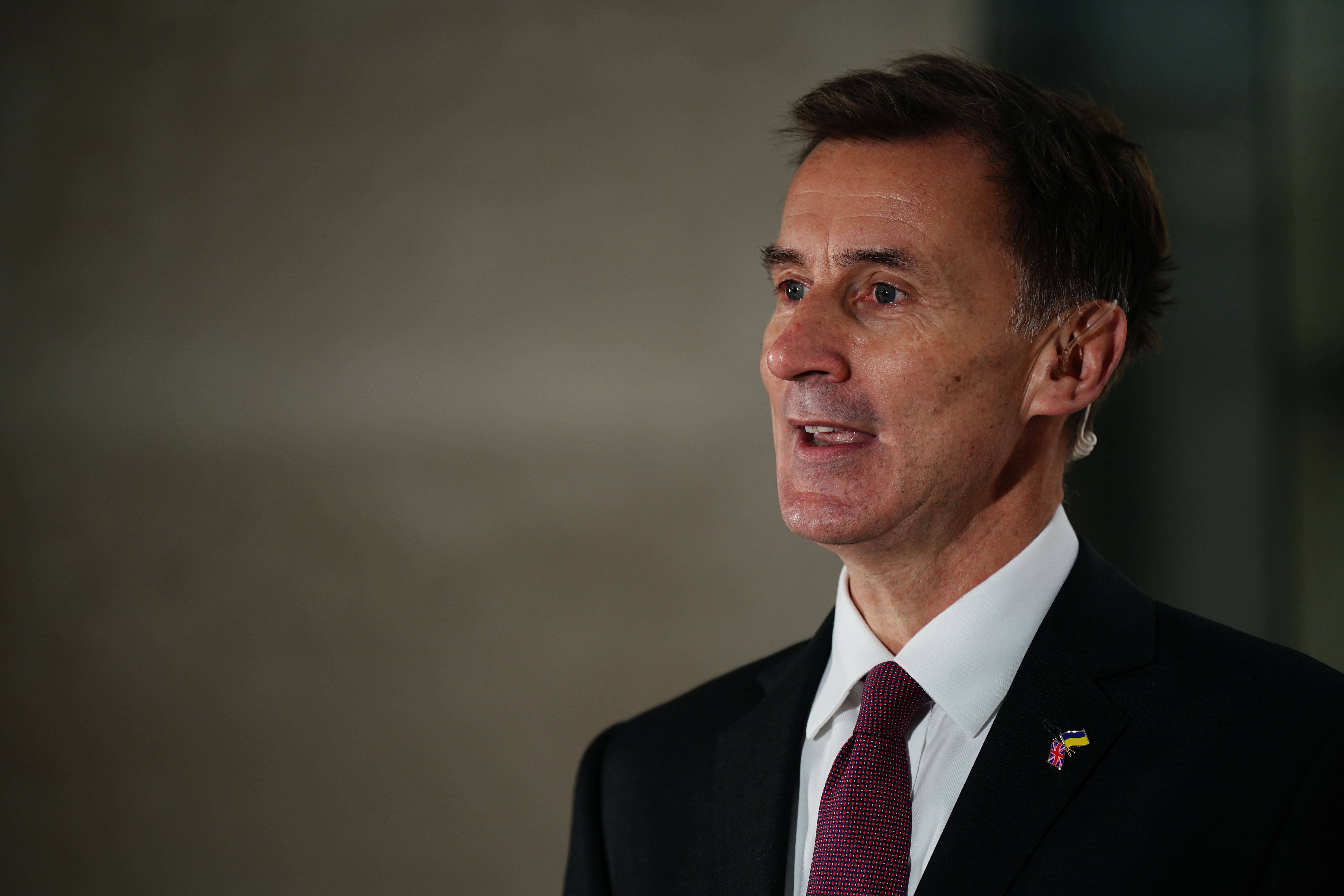Chancellor concedes Brexit made EU barriers and says migration ‘very important’
Jeremy Hunt insisted the UK would find a way to improve trading ties with the EU without rejoining the single market.

Your support helps us to tell the story
From reproductive rights to climate change to Big Tech, The Independent is on the ground when the story is developing. Whether it's investigating the financials of Elon Musk's pro-Trump PAC or producing our latest documentary, 'The A Word', which shines a light on the American women fighting for reproductive rights, we know how important it is to parse out the facts from the messaging.
At such a critical moment in US history, we need reporters on the ground. Your donation allows us to keep sending journalists to speak to both sides of the story.
The Independent is trusted by Americans across the entire political spectrum. And unlike many other quality news outlets, we choose not to lock Americans out of our reporting and analysis with paywalls. We believe quality journalism should be available to everyone, paid for by those who can afford it.
Your support makes all the difference.Boris Johnson’s Brexit deal has caused damaging trade barriers with the European Union, the Chancellor has conceded, as he said immigration will be “very important” for the economy.
Jeremy Hunt insisted the UK would find a way to improve trading ties with the EU without rejoining the single market.
His comments came after the Office for Budget Responsibility (OBR) said Brexit caused a “significant adverse impact” to trade volumes and business relationships between UK and EU firms.
The latest evidence suggests that Brexit has had a significant adverse impact on UK trade, via reducing both overall trade volumes and the number of trading relationships between UK and EU firms
Asked if rejoining the single market would boost growth, the Chancellor told BBC Radio 4’s Today programme: “I think having unfettered trade with our neighbours and countries all over the world is very beneficial to growth.
“I have great confidence that over the years ahead we will find outside the single market we are able to remove the vast majority of the trade barriers that exist between us and the EU. It will take time.”
Pressed on the single market, he said: “I don’t think it’s the right way to boost growth because it would be against what people were voting for when they supported Brexit which was to have control of our borders and membership of the single market requires free movement of people.
“So I think we can find other ways that will more than compensate for those advantages.”
Mr Hunt insisted that immigration is required to boost growth.
“There needs to be a long-term plan if we’re going to bring down migration in a way that doesn’t harm the economy,” he said.
“We are recognising that we will need migration for the years ahead – that will be very important for the economy, yes.”
The Chancellor insisted Home Secretary Suella Braverman backs his plans, saying: “Her priority is to reduce illegal migration and deal with the small boats issue.”
Downing Street said Rishi Sunak remained committed to reducing migration levels in the long term.
A No 10 spokeswoman denied that the Prime Minister and the Chancellor were at odds on the issue, pointing out that the assumption of the OBR’s forecasts of net migration of 205,000 a year was “considerably less” than the actual figure of 250,000 in recent years.
“The Prime Minister has been clear he wants to have control of migration so that we can have the skills and talent that we need to support businesses and our economy while at the same time making sure businesses are investing in the British workforce as well,” she said.
“It is making sure that we have that right balance and a system that works in the UK’s best interests. There is no disagreement with what the Chancellor said. It is not at odds with Government policy.”
The Brexit deal brokered by Mr Johnson while prime minister saw the UK leave the EU’s single market and create barriers to doing business with Britain’s largest trading partner.
On Friday, the Institute for Fiscal Studies said “very clearly Brexit was an economic own goal” that has harmed economic growth.
The economic think tank’s director Paul Johnson said it has been “very bad news indeed and continues to be bad news, particularly the way that we’ve done it, the hard type of Brexit we’ve had, distancing ourselves from the single market”.
On Thursday, the OBR said: “Our trade forecast reflects our assumption that Brexit will result in the UK’s trade intensity being 15% lower in the long run than if the UK had remained in the EU.
“The latest evidence suggests that Brexit has had a significant adverse impact on UK trade, via reducing both overall trade volumes and the number of trading relationships between UK and EU firms.”
The OBR also forecasts payments of £18.9 billion to Brussels under the terms of the Brexit divorce deal between 2022-23 and 2027-28.